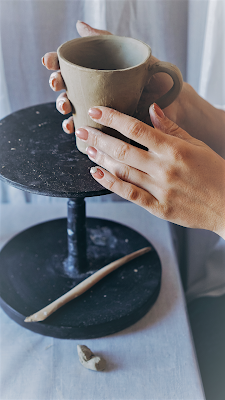Mihaly Csikszentmihalyi has been doing some fascinating research into creativity and enjoyment at the University of Chicago for over thirty years now. He invented a new way to study enjoyment. It’s called the Experience Sampling Method.
Basically, subjects are given a pager and a booklet, and then they go about their normal lives. At random intervals eight times each day, the pager goes off. The subjects immediately stop what they’re doing and fill out the questionnaire in the booklet.
Each questionnaire is identical. It asks what they’re doing, where they are, and who they’re with. Then it asks them to mark where they are on several scales of experience, such as one to seven to indicate where they are from “happy” to “very sad.”
After collecting over a hundred thousand of these samples, Csikszentmihalyi had a huge fund of raw information. He began to wonder, “Are people happier when they use more material resources in their leisure activities? Or are they happier when they invest more of themselves?” In other words his question was, “If I spend my day off going to a movie and out to dinner (or using resources and electricity in some way), will I have a more enjoyable day off than I would if I spent the day gardening or reading or talking or doing something requiring just my own effort?”
Which is ultimately more enjoyable? Using energy outside yourself, or using your own energy?
What would you guess? To answer the question, Csikszentmihalyi and his colleagues went back through the data and sorted each experience sample by the amount of energy being used. They measured the material resources in units of energy called BTUs (British Thermal Units, the energy it takes to raise one pound of water one degree Fahrenheit) and sifted the data in search of an answer.
What they found surprised everyone. The fewer BTUs a person used in his leisure, the more he enjoyed it. Those time-off activities like watching TV, driving, boating, or anything that used electricity or expensive equipment were less enjoyable than self-powered activities like conversing with a friend, working on a hobby, training a dog, or gardening. This goes against the prevailing notions of what’s enjoyable. “Everybody knows” it would be more fun cruising on a yacht drinking margaritas than building a bookshelf in your basement. “Everybody knows” it would be more fun to go to the movies than it would to sit home and read a book. But according to the research, that’s not the case. Certainly those high-BTU activities are easier and more immediately appealing. But not more enjoyable.
When the pager went off and the participants stopped and checked how much they were enjoying what they were doing, they discovered something truly illuminating: The most fun things don’t cost much.
Is this true for you? Test it. On your next two days off, do something that uses up material resources the first day, and the next day, have a friend over and converse or do something powered by your own energy. You’ll see a difference. The activity might not be as titillating at the moment, but when your day is done, you’ll be more satisfied with the self-powered day.
Do you want some first-class leisure? Find an interest and pursue it. Turn off the TV and use your own energy. You may be surprised to find it doesn’t wear you out but fully refreshes you. This is extremely good news. It’s good for your pocketbook, it’s good for the planet, and it’s good for your own enjoyment. Use more of your own BTUs on your time off and the world will be a better place.
Adam Khan is the author of Principles For Personal Growth, Slotralogy, Antivirus For Your Mind, and co-author with Klassy Evans of How to Change the Way You Look at Things (in Plain English). Follow his podcast, The Adam Bomb.


No comments:
Post a Comment